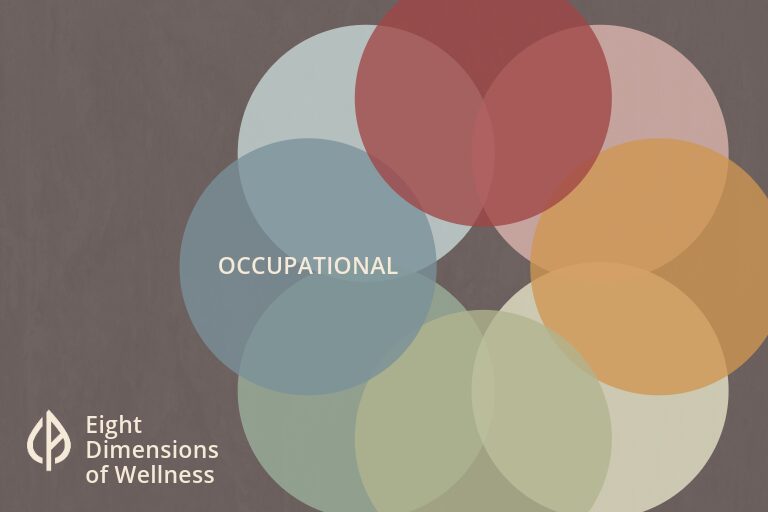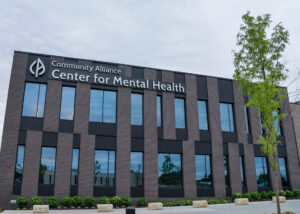How Community Alliance supports clients’ employment to improve their mental health

Multiple dimensions contribute to mental well-being. That’s why Community Alliance provides integrated services for our clients — including employment support.
Someone’s state of employment can have significant effects on their mental health, says Susan Lensch, Community Alliance’s WorkSource program manager.
“Employment provides structure for a person’s daily routine, and we know that structure is one of the key components of good mental health,” said Susan. “It also gives you a sense of confidence, purpose and achievement when contributing to something bigger than yourself.”
At Community Alliance, employment is an important component in helping clients recover and improve their quality of life. That’s why our range of services includes a supported employment program, WorkSource.
Our WorkSource program specifically focuses on employment support. We help clients discover their interests and abilities, develop their resumes, connect with employers, complete applications, prepare for interviews and more. When individuals with a mental health disorder are involved in supported employment programs, their likelihood of maintaining employment significantly increases.
The WorkSource program features multiple employment specialists, a peer support specialist and a business employer liaison who builds relationships with local employers to create opportunities for those in the program. We welcome anyone who has a mental health diagnosis and wants to work — you do not have to be involved in other Community Alliance programs.
“Our employment services are tailored to individual needs and desires,” Susan said. “We help people figure out what they want to do, where they want to work, and the type of employer that they want to work with. There are so many things to think about when you’re going to work, and for somebody who has a mental health disorder, they have so many other things to manage. We come alongside them to help them figure out all these other pieces so they don’t have to do it alone.”
Overcoming barriers
Everyone in the WorkSource program wants to work, but desire is just the beginning. We work with each client to help them gain insight into their mental health and understand how it could impact their work, such as symptoms to recognize, what may trigger those symptoms in a work environment and how they can employ coping skills on the job. Progress is rarely linear, but forward movement is always possible.
As many in the workforce do, “A person might try out a job, and it’s not the best match,” Susan said. “They might not have the skills that an employer is looking for. They might not be able to work the hours needed or have the stamina for that position. That’s okay. We encourage clients to give it another shot, to try something different. We use the opportunities that don’t work out as a positive contributing factor to help them do something that will work out.”
Some barriers to employment are outside of an individual’s control, such as transportation and earnings limitations necessary to maintain critical benefits. For some, the cost of medication that is necessary for good mental health may not be affordable if insurance benefits are lost. We always try to understand and work with the complex barriers clients face to help them explore employment that creates the best possible outcomes for themselves and their quality of life.
Building connections
Throughout the last three decades, Community Alliance has developed relationships with many employers in Omaha. The WorkSource program’s business employer liaison maintains these relationships, develops new connections and educates employers to decrease stigma around employing someone with a mental health diagnosis.
Employment specialists support the liaison by communicating their clients’ interests, skills, availability and barriers to guide the development of employer relationships. For example, if multiple clients are interested in a specific type of work, but they do not have access to a personal vehicle, the liaison will tailor their job search to employers who are on a bus line.
The WorkSource program doesn’t limit its time with clients. Even those who secure employment may still benefit from the support of an employment specialist. We help clients develop natural supports to reach a level of independence, but as long as someone needs us, we’re here.
Defining success
“Success” in the WorkSource program is defined by its participants. While helping people secure and maintain long-term employment is the program’s ultimate goal, Susan explains that success is different for everyone.
“Some people try a few jobs and discover they have some other things they need to focus on first before they’re ready to work,” she said. “Does that mean that they were unsuccessful? No, it means that they successfully gained some insight into what their needs truly are. They learned something about themselves that helped them grow.”
Success for Elise (name changed for client confidentiality) wasn’t a short journey. Elise came to Community Alliance after losing a job that was not conducive to her mental health, abilities or comfort level. She began working with an employment specialist to explore new opportunities, starting with baking at a cafe. Throughout each experience, she learned more about her mental health, interests and abilities to hone in on what she wanted to pursue. She discovered a passion for physically helping people to improve their quality of life, and her employment specialist connected Elise with a local care facility. Since being hired, Elise has participated in specialized training to gain new skills, which has further filled her work with meaning. Her employment specialist has been with her every step of the way to provide encouragement and support.
Getting started
To join the WorkSource program, individuals must first register as a Community Alliance client. Then, we request documentation for a mental health disorder from their medical provider so they can be enrolled in our program. From there, an employment specialist will explain the program further and complete the intake process with the client. Our goal is to help individuals connect with an employer within 30 days. To learn more about the program, or to refer someone, call 402-715-5668.



